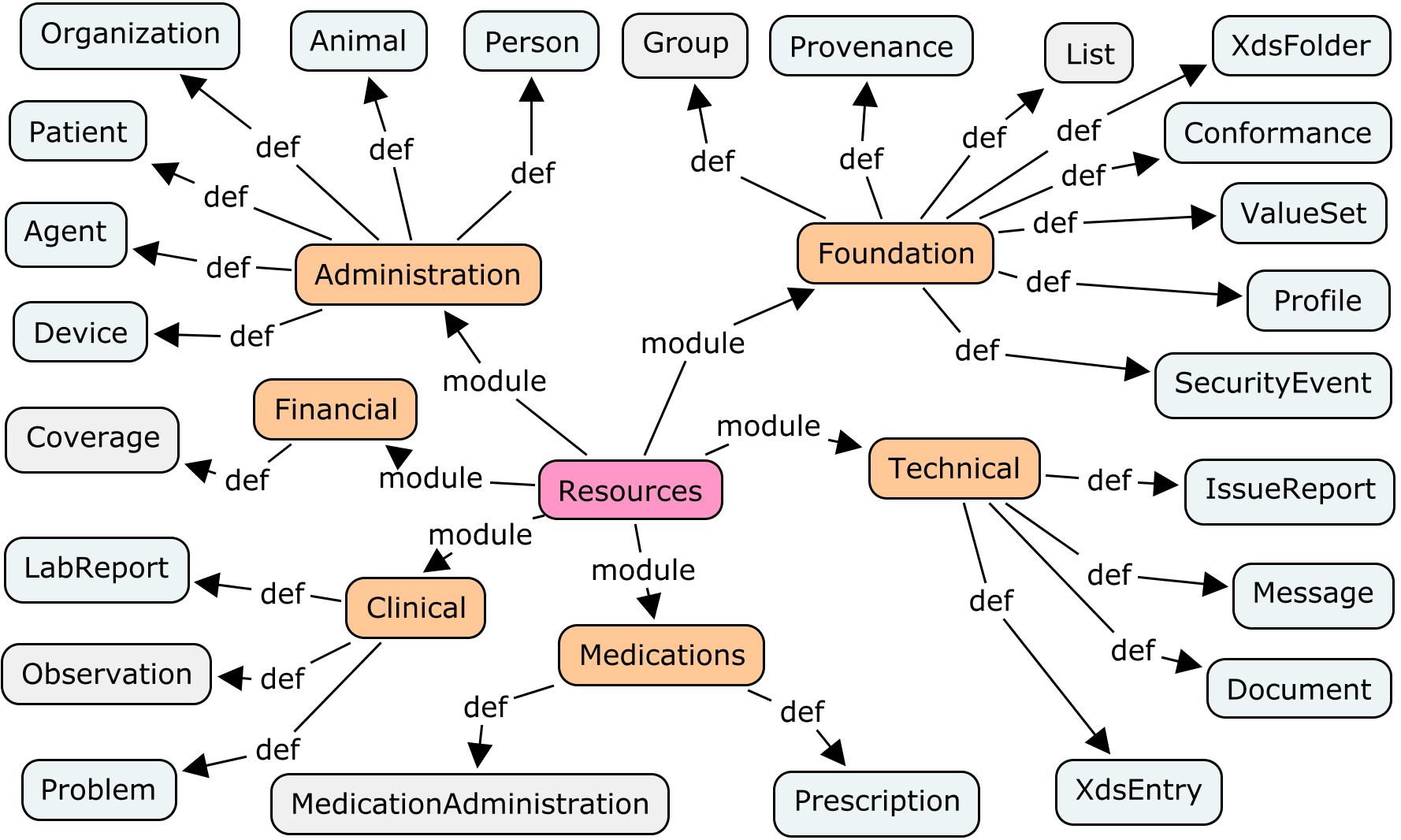JavaScript
inside
PostgreSQL
JavaScript inside PostgreSQL

FHIR: Fast Healthcare Interoperability Resources

Polyglot

Ruby, Clojure, JVM, JavaScript, .NET ...

fhirbase
SELECT fhir.create( $JSON$
{
resourceType: "Patient",
name: "Ivan",
birthDate: "1981-01-02"
}
$JSON$);
SELECT fhir.search('Patient', 'name=ivan&birthdate=>1970');
It works!
- fhirface, Aidbox - clojure
- Netrika (SPb) - .NET
- Kainos (UK) - Java
But, programmer UX is :(
- own preprocessor
- own modules
- SQL & PL/PGSQL not expressive
- own test framework

Preprocessor
func _build_url(_cfg_ jsonb, VARIADIC path text[]) RETURNS text
SELECT _cfg_->>'base' || '/' || (SELECT string_agg(x, '/')
FROM unnest(path) x)
CREATE OR REPLACE FUNCTION
module._build_url(_cfg_ jsonb, VARIADIC path text[]) RETURNS text
AS $$
SELECT _cfg_->>'base' || '/' || (SELECT string_agg(x, '/')
FROM unnest(path) x)
$$ language SQL immutable;
Modules
-- #import ./fhirbase_json.sql
-- #import ./fhirbase_gen.sql
-- #import ./fhirbase_coll.sql
-- #import ./fhirbase_util.sql
-- #import ./fhirbase_generate.sql
func _build_url(_cfg_ jsonb, VARIADIC path text[]) RETURNS text
SELECT _cfg_->>'base' || '/' || (SELECT string_agg(x, '/')
FROM unnest(path) x)
SQL PG/PLSQL
func _expand_search_params(_resource_type text, _query text) RETURNS setof query_param
WITH RECURSIVE params(parent_resource, link_path, res, chain, key, operator, value) AS (
SELECT null::text as parent_resource, -- we start with empty parent resoure
'{}'::text[] as link_path, -- path of reference attribute to join
_resource_type::text as res, -- this is resource to apply condition
ARRAY[_resource_type]::text[] || key as chain, -- initial chain
key as key,
operator as operator,
value as value
FROM fhirbase_params._parse_param(_query)
WHERE key[1] NOT IN ('_tag', '_security', '_profile', '_sort', '_count', '_page')
UNION
SELECT res as parent_resource, -- move res to parent_resource
fhirbase_coll._rest(ri.path) as link_path, -- remove first element
this.get_reference_type(x.key[1], re.ref_type) as res, -- set next res in chain
x.chain AS chain, -- save search path
fhirbase_coll._rest(x.key) AS key, -- remove first item from key untill only one key left
x.operator,
x.value
FROM params x
JOIN searchparameter ri
ON ri.name = split_part(key[1], ':',1)
AND ri.base = x.res
JOIN structuredefinition_elements re
ON re.path = ri.path
WHERE array_length(key,1) > 1
)
SELECT
parent_resource as parent_resource,
link_path as link_path,
res as resource_type,
fhirbase_coll._butlast(p.chain) as chain,
ri.search_type,
ri.is_primitive,
ri.type,
fhirbase_coll._rest(ri.path)::text[] as field_path,
fhirbase_coll._last(key) as key,
operator,
value
FROM params p
JOIN searchparameter ri
ON ri.base = res
AND ri.name = key[1]
where array_length(key,1) = 1
ORDER by p.chain
Tests
BEGIN;
_extract_id('rid/_history/vid') => 'rid'
-- SELECT expect(_extract_id('rid/_history/vid'),'rid')
SELECT fhirbase_generate.generate_tables('{Patient}');
setv('createOutcome',
fhirbase_crud.create('{}'::jsonb, :'pt_json')
);
getv('createOutcome')->>'resourceType' => 'OperationOutcome'
getv('createOutcome')#>>'{issue,0,code,coding,1,code}' => '400'
ROLLBACK;
Logic in DB

Logic in DB: PRO
- Performance (faster transactions, data locality)
- Consistency (like incapsulation)
- Integration by db
- Reuse
Logic in DB: CONTRA
- Overload database
- No good pracitces (TDD, modules etc)
- Archaic languages
- Slow development
Unresolvable?
- +modern language
- +modularity
- +packages
- +good practices
Postgres: OS for data
- extensions (SQL, C, C++)
- custom types
- advanced indexes
- pluggable languages (python, plpgsql)
- FDW (Foreign Data Wrappers)
pg: extensions
-- PostGIS: a spatial database extender
SELECT superhero.name
FROM city, superhero
WHERE ST_Contains(city.geom, superhero.geom)
AND city.name = 'Gotham';
http://pgxn.org/
pg: custom types
CREATE TYPE address AS (city text, street text);
typedef struct Complex {
double x;
double y;
} Complex;
CREATE FUNCTION complex_in(cstring)
RETURNS complex AS 'filename'
LANGUAGE C IMMUTABLE STRICT;
pg: indexes
-- GIN Index
CREATE EXTENSION IF NOT EXISTS pg_trgm;
CREATE INDEX users_search_idx ON users
USING gin (first_name gin_trgm_ops, last_name gin_trgm_ops);
SELECT count(*) FROM users where first_name ilike '%aeb%';
pg: languages
CREATE LANGUAGE plpython;
CREATE FUNCTION pymax (a integer, b integer)
RETURNS integer
AS $$
if a > b:
return a
return b
$$ LANGUAGE plpythonu;
pg: FDW
CREATE EXTENSION file_fdw;
CREATE SERVER data FOREIGN DATA WRAPPER file_fdw;
CREATE FOREIGN TABLE pglog (
name text,
address tetx
) SERVER data
OPTIONS ( filename '/users.csv', format 'csv' );
What is a most popular lang now?
plv8: V8 JavaScript in pg
- Scalar function calls
- Trigger function calls
- Mapping between JS and DB types
- Prepared Statements and Cursors
- Subtransaction & Window function API
- Remote debugger
- Runtime separation across users
plv8: functions
CREATE FUNCTION plv8_test(keys text[], vals text[])
RETURNS text AS $$
var o = {};
for(var i=0; i<keys.length; i++){
o[keys[i]] = vals[i];
}
return JSON.stringify(o);
$$ LANGUAGE plv8 IMMUTABLE STRICT;
SELECT plv8_test(ARRAY['name', 'age'], ARRAY['Tom', '29']);
-- plv8_test
---------------------------
-- {"name":"Tom","age":"29"}
plv8: returning function calls
CREATE TYPE rec AS (i integer, t text);
CREATE FUNCTION set_of_records() RETURNS SETOF rec AS
$$
// plv8.return_next() stores records in an internal tuplestore,
// and return all of them at the end of function.
plv8.return_next( { "i": 1, "t": "a" } );
plv8.return_next( { "i": 2, "t": "b" } );
// You can also return records with an array of JSON.
return [ { "i": 3, "t": "c" }, { "i": 4, "t": "d" } ];
$$
LANGUAGE plv8;
SELECT * FROM set_of_records();
plv8: triggers
CREATE FUNCTION test_trigger() RETURNS trigger AS
$$
plv8.elog(NOTICE, "NEW = ", JSON.stringify(NEW));
plv8.elog(NOTICE, "OLD = ", JSON.stringify(OLD));
plv8.elog(NOTICE, "TG_OP = ", TG_OP);
plv8.elog(NOTICE, "TG_ARGV = ", TG_ARGV);
if (TG_OP == "UPDATE") {
NEW.i = 102;
return NEW;
}
$$ LANGUAGE "plv8";
CREATE TRIGGER test_trigger
BEFORE INSERT OR UPDATE OR DELETE
ON test_tbl FOR EACH ROW
EXECUTE PROCEDURE test_trigger('foo', 'bar');
plv8: cursors
var plan = plv8.prepare(
'SELECT * FROM tbl WHERE col = $1', ['int']
);
var rows = plan.execute( [1] );
var sum = 0;
for (var i = 0; i < rows.length; i++) {
sum += rows[i].num;
}
plan.free();
return sum;
plv8: performance
PG + PLV8 + NODEJS?

pg.js: concept
- write in node
- compile into plv8
pg.js: mock plv8
var Client = require('pg-native')
var client = new Client()
client.connectSync('postgres://root:root@localhost:5432/test');
module.exports = {
execute: function(){
return client.querySync.apply(client,arguments)
},
elog: function(x, msg){
console.log(msg)
}
}
..
pg.js: write in node
util = require('./util')
uuid = (plv8)->
plv8.execute('select gen_random_uuid() as uuid')[0].uuid
exports.uuid = uuid
create = (plv8, resource)->
table_name = util.table_name(resource_type)
# ...
json = JSON.stringify(resource)
res = plv8.execute """
INSERT INTO #{table_name}
(logical_id, version_id, content)
VALUES ($1,$2,$3)
""", [logical_id, version_id, json]
resource
pg.js: test in node
plv8 = require('../lib/plv8')
crud = require('../src/crud')
schema = require('../src/schema')
describe "CRUD", ()->
beforeEach ()->
schema.generate_table(plv8, 'Patient')
it "read", ()->
pt = {resourceType: 'Patient', name: {text: 'Albert'}}
pt_created = crud.create(plv8, pt)
expect(pt_created.id).toBeTruthy()
expect(pt_created.meta.versionId).toBeTruthy()
pg.js: compile into plv8
Module = require("module")
oldrequire = Module::require
Module::require = (fl) ->
currentModule = fl
oldrequire.apply this, arguments
oldcompile = Module::_compile
Module::_compile = (answer, filename) ->
for k,v of @exports when v.plv8?
plv8_exports[k] ={fn: v, filename: filename}
pg.js: compile into plv8
CREATE OR REPLACE FUNCTION #{def_fn} AS $$
var deps = {}
var cache = {}
#{modules_js}
var require = function(dep){
if(!cache[dep]) {
var module = {exports: {}};
deps[dep](module, module.exports, require);
cache[dep] = module.exports;
}
return cache[dep]
}
return require('#{mod}').#{k}#{def_call};
$$ LANGUAGE plv8 IMMUTABLE STRICT;
pg.js: call in postgres
select fhir.read('StructureDefinition', 'Patient') as read
pg.js: Road Map
- Remove death code (Google closure)
- Implement most of plv8
- Make it npm package